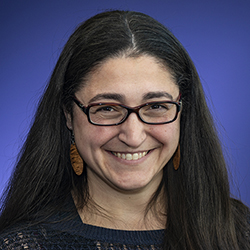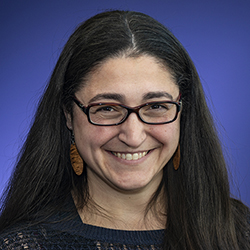Alexis Kaushansky, PhD

Specialties
- Children's Title: Principal Investigator, Supervisor, Center for Global Infectious Disease Research
- Academic Title: Professor
- Research Center: Center for Global Infectious Disease Research
-
Biography
Alexis Kaushansky, PhD, is a professor at the Center for Global Infectious Disease Research. She received her BS in chemistry from Harvey Mudd College in 2004, and her PhD from Harvard University in 2010. During her PhD, she trained with Dr. Gavin MacBeath, where she was fortunate to work as part of an interdisciplinary team that included chemists, computer scientists and biologists to develop protein array technology and apply this approach to understanding the molecular changes that occur in cancer. She joined Dr. Stefan Kappe’s group as a postdoctoral fellow in 2010 to use similar technologies to uncover changes that occur in the liver in response to malaria infection. In 2015, she started a lab at the center which is focused on discovering how pathogens, such as malaria, interact with their human host and using this knowledge to eliminate infection. Outside of work, she enjoys running, cooking, traveling and debating current events.
Research Description
The Kaushansky Lab works with the pathogens of infectious diseases like malaria that infect hundreds of millions of people every year.
Research Focus Area
Drug Resistance, Global Health, Host-Pathogen Interaction, Immunology, Infectious Disease, Malaria, Systems Biology
-
Related Resources
-
NCBI Bibliography
-
Kaushansky Lab Webpage
-
Alexis Kaushansky, PhD Researcher Profile
View the Seattle Children's Research Institute profile of Alexis Kaushansky including their publications and grants.
-
-
Patient Testimonials
-
Awards and Honors
Loading...Award Name Award Description Awarded By Award Date {{ award.name }} {{ award.description }} {{ award.organization }} {{ award.displayDate }} No Awards and Honors found for Alexis Kaushansky, PhD
-
Publications
Loading...No Publications found for Alexis Kaushansky, PhD
-
Presentations
Loading...Presentation Title Event Location Date {{ presentation.title }} {{ presentation.presentedAt }} {{ presentation.location }} {{ presentation.displayDate }} No Presentations found for Alexis Kaushansky, PhD
-
Research Funding
Loading...Grant Title Grantor Amount Award Date {{ funding.title }} {{ funding.grantedBy }} {{ funding.amount }} {{ funding.displayDate }} No Research Funding found for Alexis Kaushansky, PhD
-
Clinical Trials and Research Studies
Loading...{{ item.st }}
No clinical trials found for Alexis Kaushansky, PhD.
